Features
Why Death’s Door Feels Familiar Yet Satisfying
Death’s Door is its own special symphony that borrows liberally (yet creatively) from the Zeldas and Dark Souls games before it.
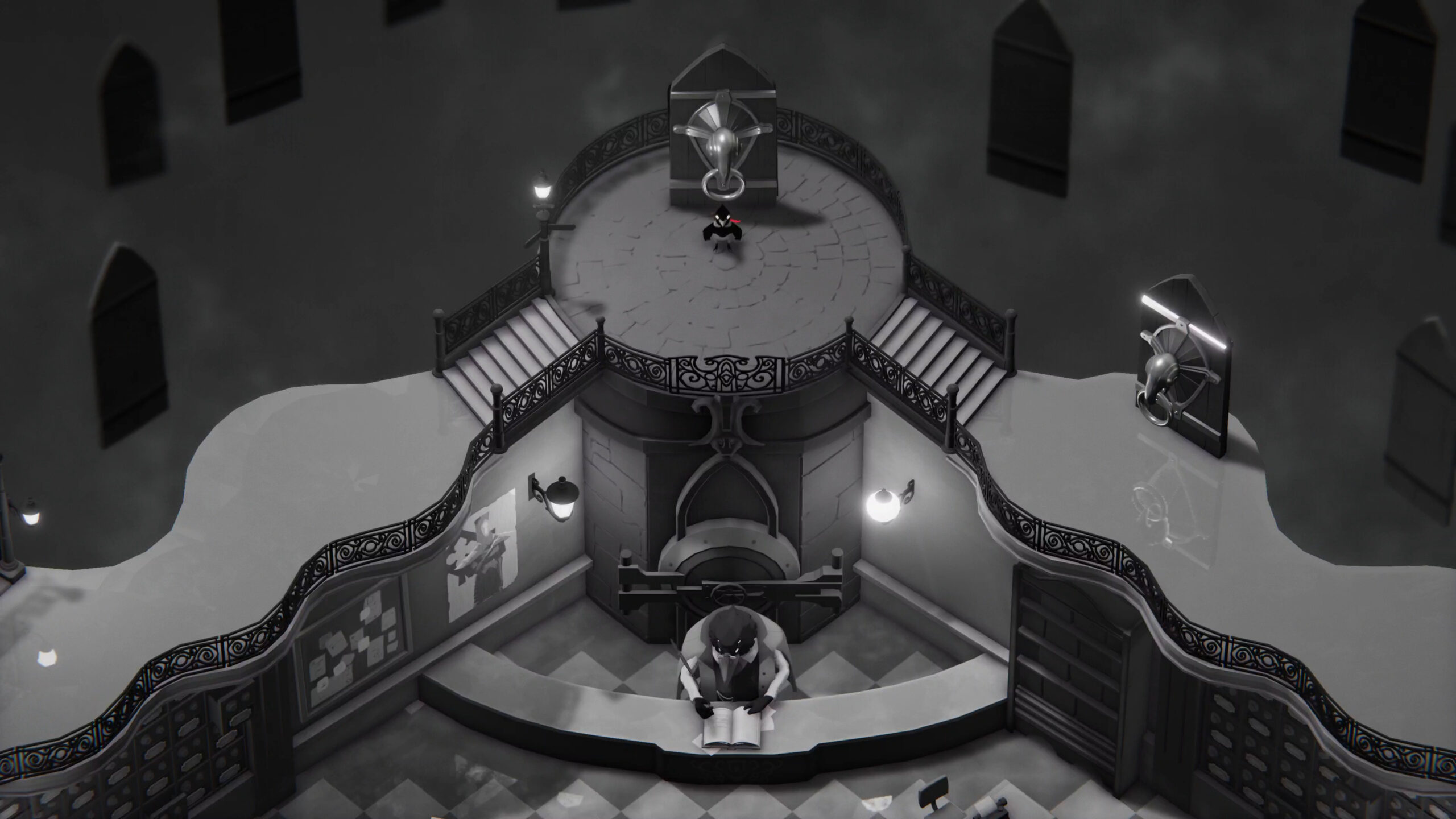
Rain crashes down and a disembodied voice beckons you for help. The first moments in A Link to the Past are like an unforgettable song. But what if that gloom persisted and you added some gentle notes from Dark Souls? And an awesome crow?
Death’s Door is its own special symphony that borrows liberally from what came before it. Zelda and Dark Souls are important notes in the intangible sheet music that Death’s Door seamlessly blends together. It all feels familiar, but it also feels great, as Acid Nerve has managed to deliver one of the best games of the year.
A Crow’s After-Life
Death’s Door is an action-adventure game that, after an already-revered run as an Xbox exclusive, releases this week on the Switch and other platforms.
In Death’s Door, you are a crow who is a reaper on the hunt for some errant souls who’ve somehow escaped from the bureaucratic clutches of death. In this beautiful and charming world, your particular crow is tasked with traversing clever, interlocking maps that lead to a variety of tense enemy encounters, and culminate with epic and challenging multi-tiered boss battles. No map included.
Combat is simple, effective, and requires practice and patience for mastery. The world is gorgeous, the story is minimal (but well-told), and the gameplay is fantastic. But why not just play a Zelda or Dark Souls title?
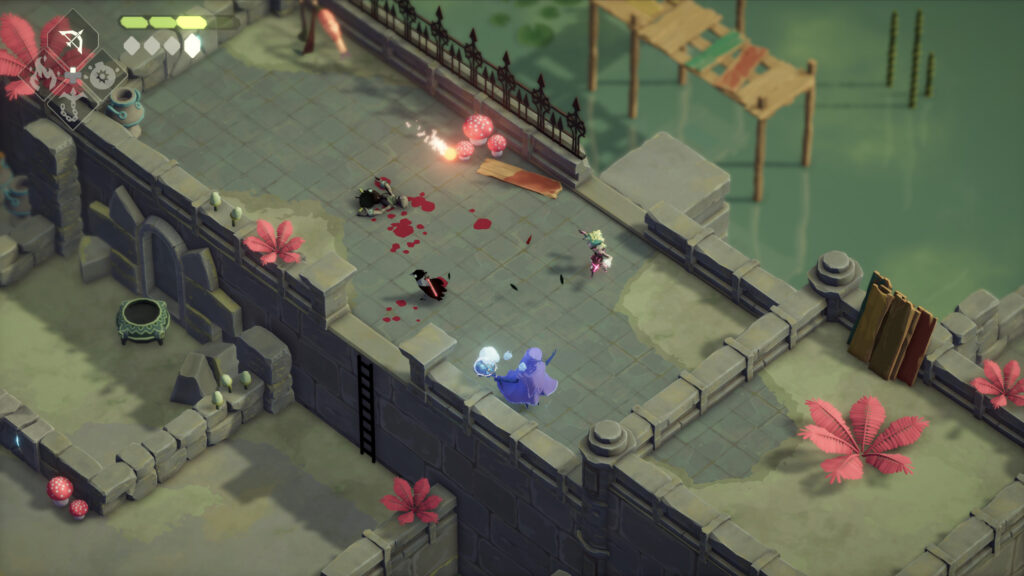
Zelda-Like What?
Death’s Door is more than a Zelda-like and it deserves to be played whether you like Zelda or not. But who doesn’t like Zelda?
The term “Zelda-like” bears a striking resemblance to its currently more prolific sibling, the so-called “Metroid-vania.” Putting aside the confusing reality that in some ways the original Metroid series was a Zelda-like, let’s pull apart some pixelated pieces to uncover the truthiest truth.
Depending on how you reckon it, Zelda is a game franchise with more than 25 installments since 1986’s The Legend of Zelda on the Famicom and Nintendo Entertainment System (NES). In the 35 years since Zelda was first released, its gameplay formula has evolved with it, but when we reference a Zelda-like, we are typically referring to the mechanics that were premiered in The Legend of Zelda and then perfected in its Super Famicom/Super Nintendo sequel, A Link to the Past. Although the reach of Zelda can be felt pretty much anywhere if you look hard enough, there are clear-cut examples Zelda-likes such as Hob, Hyper Light Drifter, or an older, oft-forgotten and notable gem: 3d Dot Game Heroes.
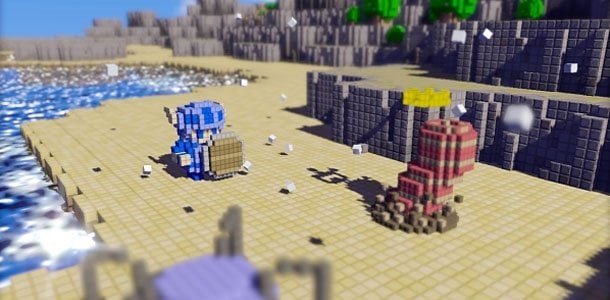
What we see in these games that has been iterated on in Death’s Door is, in a particular, a 3/4 perspective view of a world that is populated by bad guys, light puzzles, dungeons, and big bosses. You find a hero with a weapon that is often a sword. They make their way forward, often achieving power-ups that enable even more progression until the proverbial day is saved or darkness has been thwarted or what have you.
It’s fair to say that, despite the core Zelda franchise having evolved and sprawled well past it, it there’s something special about the basic adventuring formula that makes us look at certain games and decree them “Zelda-like.”
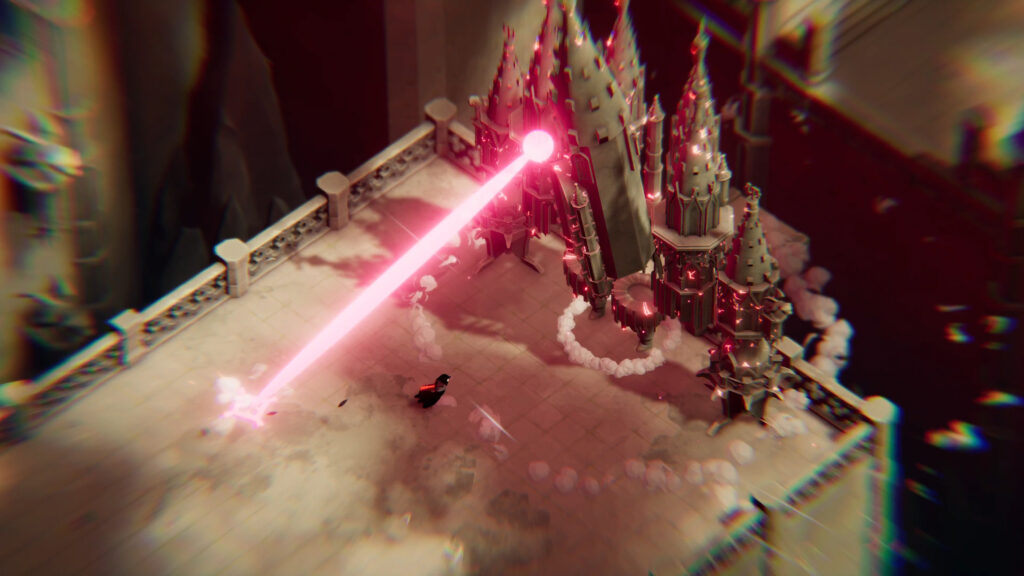
Top-Down Life
That 3/4 perspective and all the rest is present, accounted for, and well-represented in Death’s Door. You fight clever baddies and dodge-roll your way ever-forward. Like in Zelda and countless games before it, exploration is rewarded with secrets, and seemingly impossible tasks untangle themselves as you progress, learn, and gain abilities. But is there more to it?
Much of Zelda is in the DNA of Death’s Door, but where it really shines, evokes, and occasionally surpasses the greatness of its lofty Hyrulian predecessors is in its engaging boss battles.
The boss battles of Death’s Door are its ticking heart, moving action and story forward, and much like Zelda before it, each is a puzzle in itself. But here is also where it stretches into its other influences. Like a fiendish F-chord in the hands of a wild-eyed beginner, the bosses in Death’s Door are delightfully difficult. Give them some time, however, and you’ll be rocking out.
Deeper Roots
While there are echoes of many more influences harmonizing in Death’s Door – from the bouncing bosses of Crash Bandicoot to the British wit of Terry Pratchett – the other dominant notes we sense throughout your crow’s journey stem out of From Software’s souls-like franchises (who, it may be noted, were also responsible for the aforementioned 3D Dot Game Heroes…).
Like a snake devouring its own video game tail, the beloved Souls franchise owes its own debt to Zelda. Death’s Door cribs (at least to some extent) from the legacy of Dark Souls‘ infamous difficulty, but also creeps into other aspects of the game in order to compose something special.
If the utterance of a Souls-influence sends fear into your gaming heart, have faith, as it must be said that Death’s Door is more forgiving than most Souls-likes. It’s a game that wants you to get better, and you can feel this as you progress. But it turns out that the difficulty spike isn’t the only instrument from the Lordranian kit.
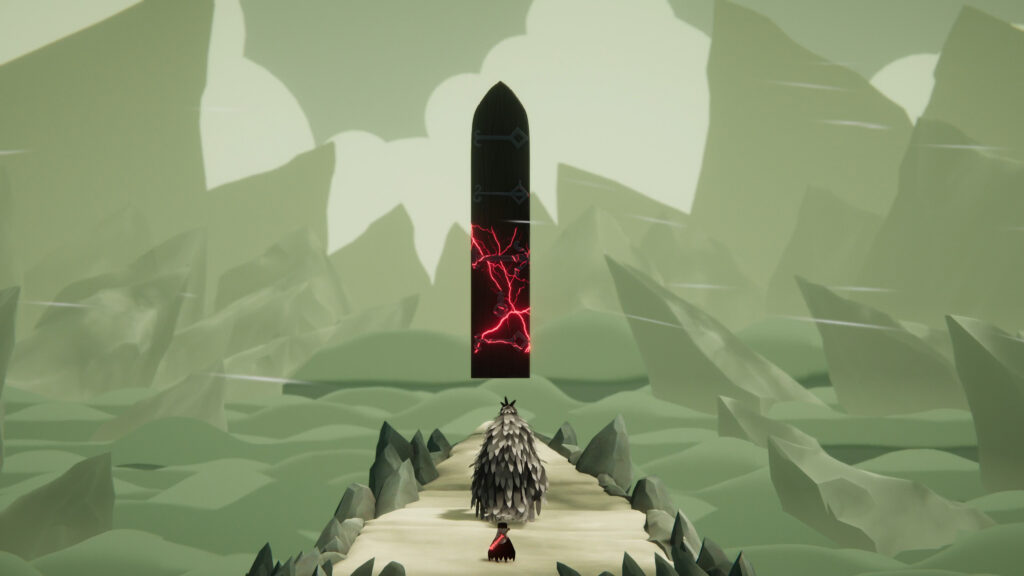
A Bit of Gloom Goes A Long Way
So we have a slightly sweetened version of a Souls-like’s difficulty along with the top-down glory of a very fine Zelda-like, but there’s something else in this mix-tape that makes Death’s Door really sing.
It’s the gloom, and the fun they have with it. It’s impossible not to look at the world of Death’s Door and just feel that connection to Dark Souls. It’s an ineffable tone that has been lifted from the hues and nooks of the Souls games, winding us squarely back to those rainy first moments in Link to the Past.
From its own first moments, Death’s Door manages to create a mood and a feel. In each environment, character, and even the light progression system, there is a murky sweetness that somehow blends these two influences, and so many others, fantastically. Like a new song that reminds you so much of an old favorite, you’re left feeling like what you’ve gotten isn’t exactly new, yet utterly its own and totally great.
Rocking Out In The Shadow of Greatness
When we think of video game genres, we tend to think of broad terms like “action” or “RPG.” But here and there are some games that have such an outsized impact that, rightly or wrongly, they’ve created their own kind of sub-genre. Series like Zelda, Metroid, and Dark Souls cast a long shadow, but it’s the rare game like Death’s Door that jams out gleefully in that darkness.

Sometimes a song can transcend its influences to break new ground, but more often it’s the better for perfecting what works. Death’s Door doesn’t do much to evolve past formulas, yet it acts as a testament to the idea that every new video game needn’t break the mold in order to achieve greatness.
We often say a game or creation is “more than the sum of its parts.” Death’s Door isn’t; it’s exactly the sum of its parts, and that mix culminates in a game that is nothing short of excellent.

-

 Features4 weeks ago
Features4 weeks agoDon’t Watch These 5 Fantasy Anime… Unless You Want to Be Obsessed
-

 Culture3 weeks ago
Culture3 weeks agoMultiplayer Online Gaming Communities Connect Players Across International Borders
-

 Features3 weeks ago
Features3 weeks ago“Even if it’s used a little, it’s fine”: Demon Slayer Star Shrugs Off AI Threat
-

 Features2 weeks ago
Features2 weeks agoBest Cross-Platform Games for PC, PS5, Xbox, and Switch
-

 Game Reviews4 weeks ago
Game Reviews4 weeks agoHow Overcooked! 2 Made Ruining Friendships Fun
-

 Features3 weeks ago
Features3 weeks ago8 Video Games That Gradually Get Harder
-

 Game Reviews4 weeks ago
Game Reviews4 weeks agoHow Persona 5 Royal Critiques the Cult of Success
-

 Features2 weeks ago
Features2 weeks agoDon’t Miss This: Tokyo Revengers’ ‘Three Titans’ Arc Is What Fans Have Waited For!
-

 Features1 week ago
Features1 week agoThe End Is Near! Demon Slayer’s Final Arc Trailer Hints at a Battle of Legends
-

 Uncategorized3 weeks ago
Uncategorized3 weeks agoSleep Meditation Music: The Key to Unwinding
-

 Guides2 weeks ago
Guides2 weeks agoHow to buy games on Steam without a credit card
-

 Game Reviews2 weeks ago
Game Reviews2 weeks agoFinal Fantasy VII Rebirth Review: A Worthy Successor?






















